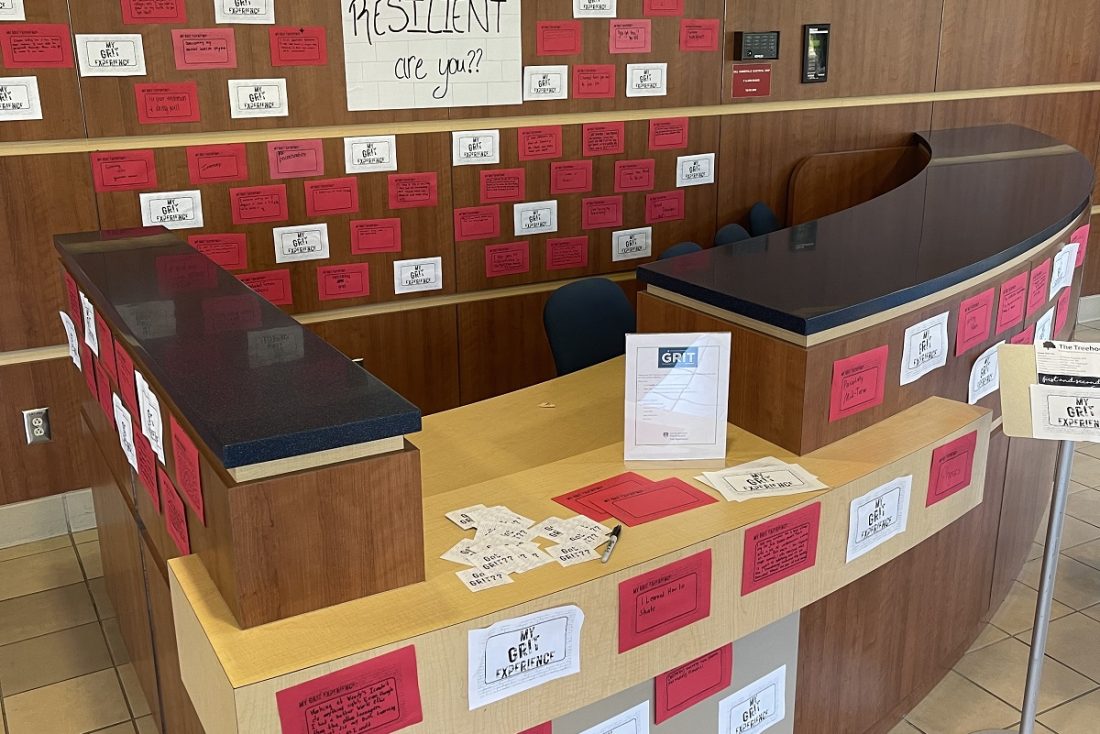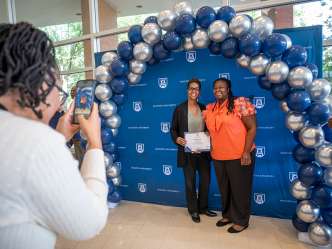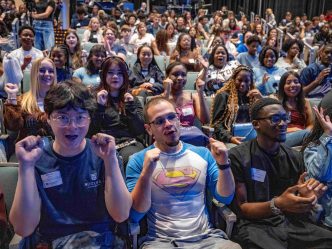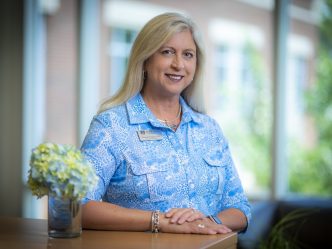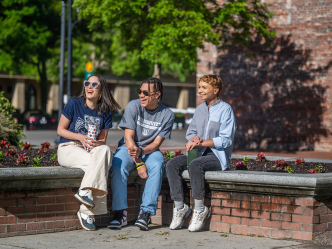Often college students experience a slump around mid-term. They may struggle with motivation to finish long-term projects or may even question their own self-efficacy.
To help combat this, the Office of First and Second Year Experiences is offering resilience programming during the month of October called GRIT and Gratitude. This is the third year the program has been offered, with GRIT standing for “Growing Resilience into Tomorrow,” but the first year that gratitude has been added to the program.
GRIT comes from what author and psychologist Angela Duckworth defines as the “passion and perseverance for very long-term goals. Grit is having stamina. Grit is sticking with your future, day in and day out. Grit is living life like it’s a marathon, not a sprint.”
Elizabeth Huggins, EdD, director of First and Second Year Experiences, knows there are drastic differences between high school and college, especially early in a collegiate career.
“If you pair gratitude with grit, it makes it a much more powerful experience. It also helps your overall well-being where you’re not so focused on your own problems, but you come out of that hole and start thinking about problems as just a blessing in disguise.”
Elizabeth Huggins, EdD, director of First and Second Year Experiences
“It’s not intelligence, and it’s not talent. It’s not anything that makes people get ahead in the world. It’s the ability to be resilient after setbacks,” said Huggins.
Part of GRIT and Gratitude month is the brick wall of resilience. Located in the lobby of University Hall, students are given the opportunity to share on a “red brick” an experience they have pushed through. It may be a milestone in their life or even doing public speaking for the first time.
“I think it’s not only a reflection for the person writing the brick, but then when students see what others have overcome, it helps put your own challenges in perspective. Some students have written ‘I’ve overcome cancer, I’ve overcome toxic relationships’ and then it makes you say, ‘If they can do that and are still in school, I can make it too,’” Huggins said.
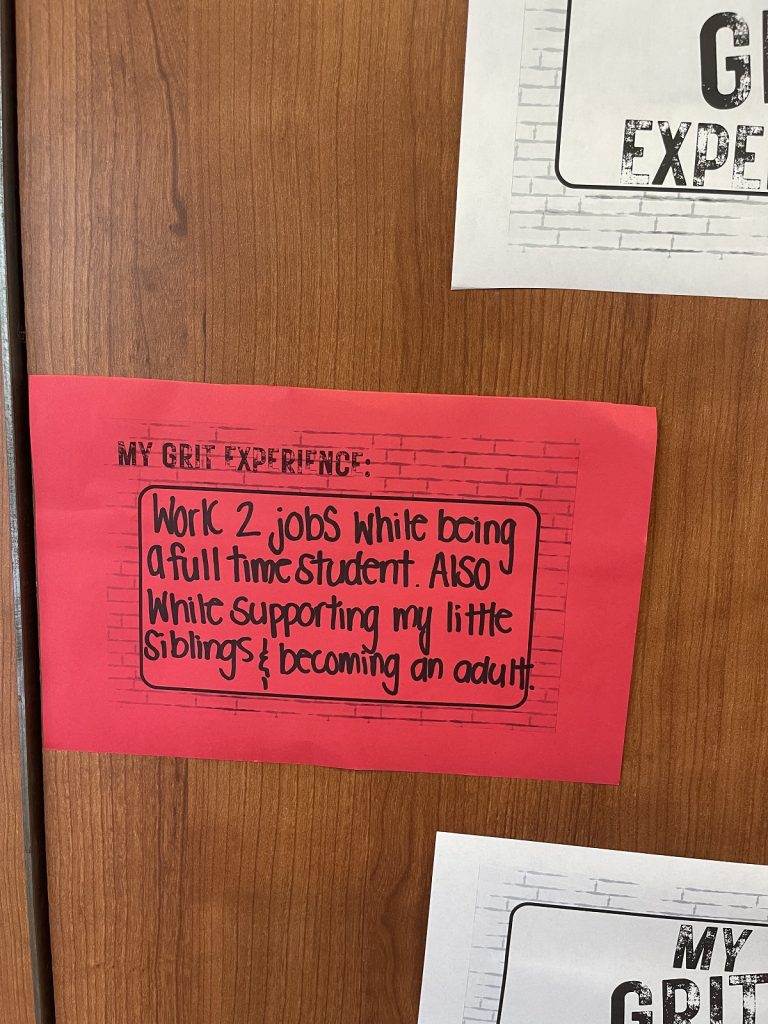
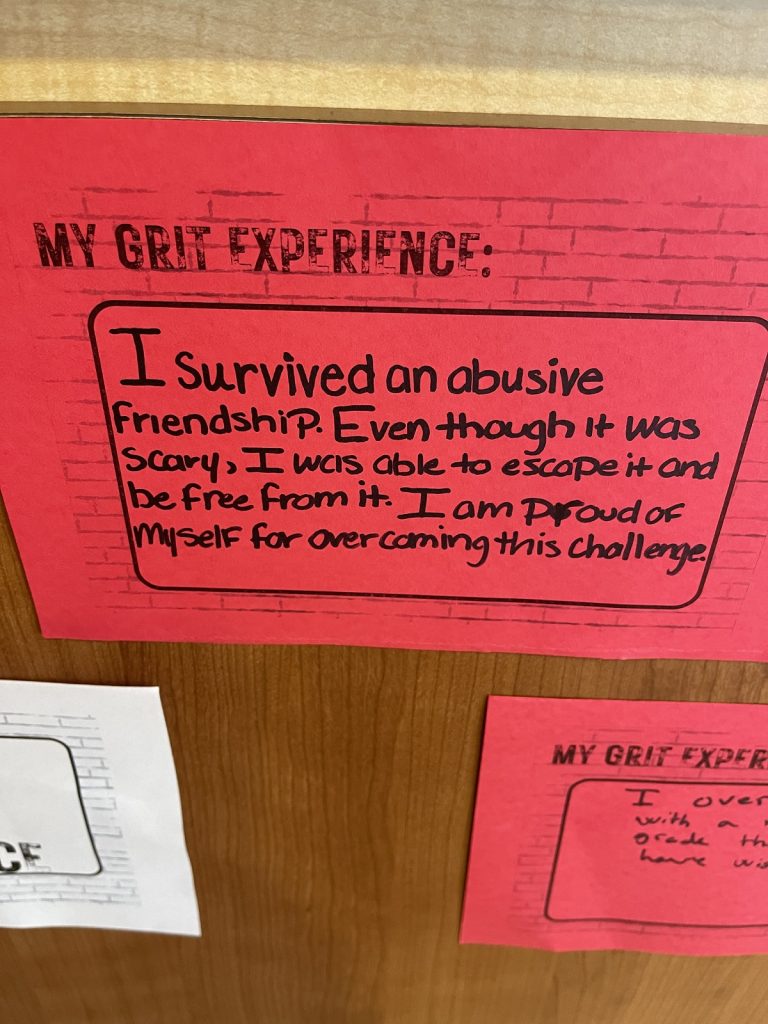
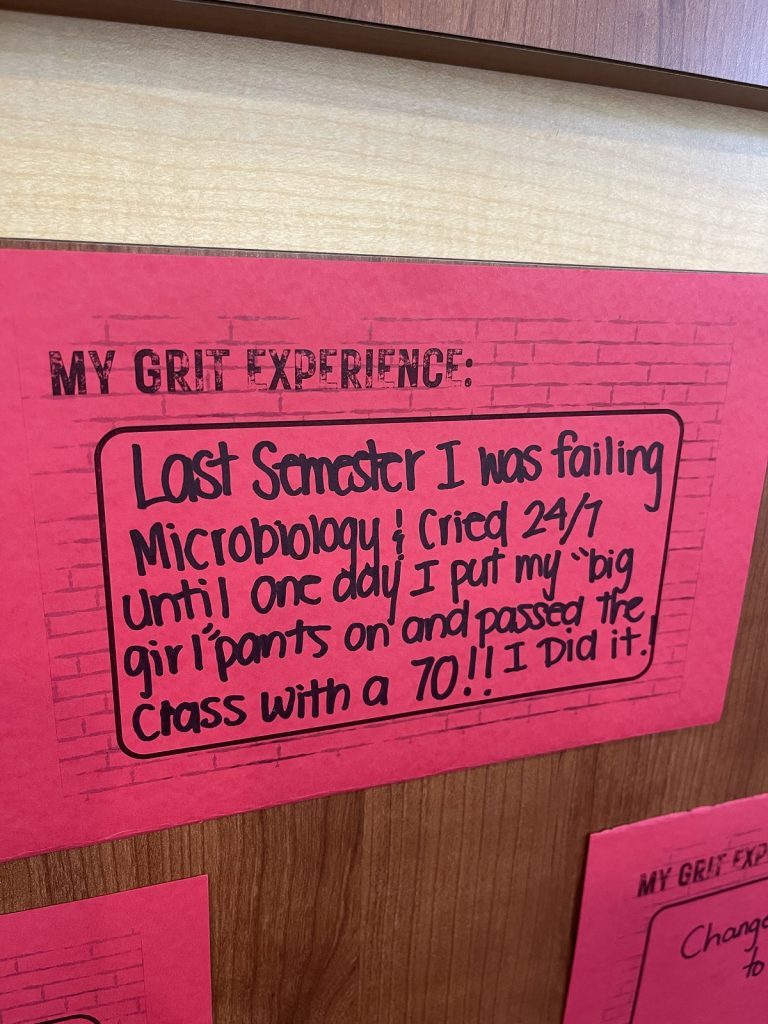
She said gratitude was added this year after doing more research and realizing it’s an important skill set for students to develop, especially in the first year.
“If you pair gratitude with grit, it makes it a much more powerful experience. It also helps your overall well-being where you’re not so focused on your own problems, but you come out of that hole and start thinking about problems as just a blessing in disguise.”
While it may be designed for first-year and second-year students, Huggins said anyone can take part in GRIT and Gratitude.
Part of the month-long activities besides the brick wall include students writing letters of encouragement to themselves that can open when they are home for winter break. They will also send thank you notes to someone and even can sign up for weekly gratitude texts.
Students are also making short video interviews for Instagram where they can tell everyone what they are grateful for, like family, friends and faculty, so they can share their joy with those who have supported them.
It all aligns with the Augusta University values of compassion and collegiality.
“Just think about how impactful it is for them to learn this at this point before they become adults in the real world and have families and jobs of their own. This is important life lessons for all of us, no matter what our age,” said Huggins.
 Augusta University
Augusta University
